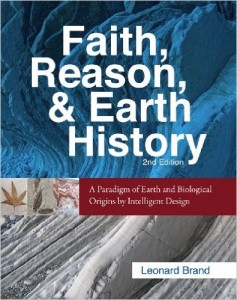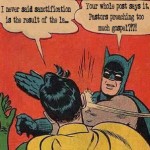(goes for all of my posts here, but please note that I speak for no one but myself)
“[Science can become], as someone has put it, ‘an organized way of going wrong with confidence.” – Leonard Brand (p. 32)
First of all, no apologies for the “click-bait” title. I will admit that part of me wanted to make that title a question – as I have big ideas to share and want to get everyone (me included) thinking and talking and questioning (again, questioning me as well! – I don’t doubt I have a lot to learn) – but I do, at least currently, think I’m right!
So, I’m glad you are here. And yes… I realize that not even the first self-proclaimed fundamentalists believed in young earth creationism. Let me now try to gradually unpack what I am really getting at in this post.
I have been taking a look at the updated textbook (2009) of young earth creationist scientist, Leonard Brand: Faith, Reason, & Earth History: A Paradigm of Earth and Biological Origins by Intelligent Design.
Asking the question, “Can creationists be effective scientists?” Brand answers in the affirmative and makes his case in some 450 pages or so of distilled wisdom. I have an undergraduate degree in the sciences (biology and chemistry) and try to keep up a bit with secular scientific literature – at least the popularized accounts. It seems to me that there is a real depth to Brand’s writing that one usually does not see in science textbooks. I suspect a lot of that has to do with how careful Brand must be – seeing as how opponents and possibly even fellow Christians would be quite eager to label him and those like him as “not real scientists”.[i]
The issue I have as I read this book is that I am increasingly coming to the conclusion that the definition of what counts as science in the modern world is far too narrow.
And I am not talking about, for example, Brand’s case that the creation is far younger than we typically think. I am talking about how our understanding of the scientific method in particular is too narrow (crazy talk? I think I am, however, very open to persuasion here – please help me to see where I may be wrong).
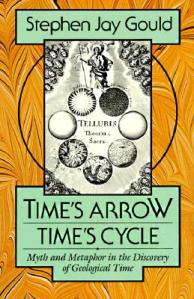
On the one hand, when Brand simply says “science is at its best when studying the characteristics of objects and processes that can be observed and quantified” (p. 37)
and
“Science cannot do experiments to test the supernatural. This concept is clear enough and also accepted by interventionists [this is his definition of scientists who believe in a global flood and that God reveals Himself to human beings – see viii], but science has [mistakenly] gone a step further and has decided to accept only theories which do not imply or require ay supernatural activity at any time in history (Johnson 1991).” (p. 73 – all bold are mine in this and following quotes)
and
“We cannot directly test whether God involved Himself in earth history. But if He did involve Himself in ways described in the Bible (creation and worldwide geological catastrophe), these events should have left some evidence in the natural world (for example, limited evidence for evolutionary intermediates and pervasive evidence for very rapid geological action). The possible existence of such evidence can be investigated scientifically.” (p. 76)
…this all sounds pretty good and sensible to me. On the other hand, he also says things like the following:
“If we hold a book in the air and drop it, the law of gravity dictates that it will fall to the floor. We can try it a million times and the same thing always happens. However, since we are mobile, reasoning beings, we can choose to stick out a hand and catch the book before it falls to the floor. We have interjected an outside force into the system and changed the course of events, but we have not broken any laws. An intelligent God could choose to interject an outside force into earth’s balanced geological systems and change the course of events to bring on a catastrophe without breaking any laws of the universe.” (p. 78)
On the one hand, this sounds fine to me, but then there is something that gives me pause (what I bolded there). Note that Brand seems keen to emphasize that God will *never* break (or suspend?) any of the universe’s laws. In short, he strongly implies that God always functions through the laws of nature that He has established, as is evident when he says, for example, that it is not defensible to think that “if God is involved in some process, that process does not function through nature’s laws.” Shortly thereafter, he also says “There is much about the universe that we do not know. So we are unreasonable to assert that God cannot work outside of the natural laws we know, because they are only a small part of the laws of the universe.” (p. 79).
Does it seem likely that Brand is separating God’s creation (“nature”) from His activity in creation too much? After all, in Brand’s telling, it seems that these are impersonal laws of nature that God created – which He of course personally uses to accomplish His will.
Is that really a good way of thinking about these things?
He also says things like this:
“The portion of the universal laws that we understand are called natural law. The things that God does which we do not understand are called supernatural… [We will someday see that things like miracles] are part of the law-bound whole that God understands and uses to accomplish His purposes. God may use some of those laws only during the process of creation. He can make use of all those laws, but we never will have the power to utilize some of them even if we do eventually understand them. That is the primary difference between natural law and what we call supernatural.” (p. 78)
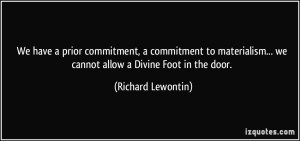
Again, we see that Brand is keen to never deny “the reality of the laws of nature”, which I get the impression all of creation can be reduced to. He further explains that, historically, the idea of the “God-of-the-gaps” is that believers in God who did science had “a tendency to explain things that did not seem possible through operation of natural laws (the “gaps” in our explanations) as requiring the direct result of God’s power”. He says that the faulty logic in the old “god-of-the-gaps” concept implies that if we can understand how something works, God does not have any part in it.” (p. 79) This is all well and good.
Or is it? Even though this seems to make some sense to me, I wonder about the implications here. First, note that for Brand, if a human being can muster the power to utilize a natural law – and hence, work more effectively with God’s “inventions” (p. 79) – we are no longer, by definition, dealing with the “supernatural” (at least insofar as we are talking about this matter as scientists?). Second, while Brand wisely writes that “naturalism is a powerful biasing influence in science in steering scientific thinking, and in many cases deciding what conclusions are to be reached” (p. 80), he also assumes [without any qualifications] that both “scientists with a naturalistic orientation and interventionists who are research-oriented” are searching for the truth (what is the scientific method really for?: finding truth? success? both? depends? should considerations like this play a part?) Finally, he says that “living things and physical phenomena are like machines in the sense that they are mechanisms that can be studied and understood” (p. 83, italics mine), for example, is “an assumption that is crucial for science” (p. 84).
Let’s focus on that last point a bit. Brand says it follows from this mechanistic assumption that “on a day-to-day basis, natural processes are not dependent on the capricious whims of the spirits or the operation of magic” (p. 84), and here we can all surely agree. That said, Christians, for example, know that God is actually nothing like this (of course Brand agrees, even if non-believers might see little difference between all the “gods” and this God). Rather, we know that the Apostle Paul argued, quoting a pagan poet, that “in Him we live and move and have our being”, and also asserted that everything was “held together by His powerful word”. My question: Dare we insist that this does not mean He is intimately involved in the movements of all things at all moments? Brand does say he believes that “God constantly uphold the laws of nature” (p. 86), but I wonder if even that is saying too little here, and is, in fact, beside the point.
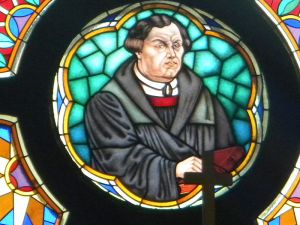
Why do I say this? Let me begin answering that question with a little bit from Michael Hanby, who recently wrote a thoughtful essay for First Things called “The Civic Project of American Christianity”. In this essay, he talked about how Christians need to think more critically about the origins and implications of political liberalism (for the connection between political liberalism and theological liberalism – almost never realized – see this post highlighting Gary Dorrien’s work). In his essay, he said, for example:
“…insofar as a mechanistic understanding of nature and a pragmatic conception of truth are the correlates of the abstract individual and the liberal notion of freedom as power, even a Newtonian understanding of nature, reason, and freedom will eventually destroy the foundations for the rationality of natural law, as reason is reduced to the calculation of forces and law becomes an extrinsic imposition…
To speak of freedom as something more than immunity from coercion, to speak of nature as something other than so many accidental aggregations of malleable matter at our disposal, to speak of truth as something other than pragmatic function, is to place oneself outside the rule of public reason and to risk becoming a stranger to the public square….”

Again, as I complained above, with Brand’s view it seems to me we are abstracting God’s creation from His activity too much – leaving us with what I think, biblically, should never be an option: serious contemplation of “impersonal laws of nature”.[ii]
Now I understand that again I am sounding audacious, as I am apt to do. After all, Christians and other theists might insist that a mechanistic universe implies a Mechanic (Newton: “the world is a machine and a perfect one, with God its creator being ‘the most perfect mechanic of all.’”) – so this kind of thinking is not necessarily bad!
My counterargument is that in conceding the assumption / knowledge of a mechanistic universe, it becomes more difficult to unambiguously assert, with the Christian apologist Nancy Pearcey, that “because a human is a someone, not a something[iii], the source of life must be also a Someone, not the forces of nature.” After all, if everything is a mechanism and hence should be considered a machine when it comes to scientific study, why would we not seriously consider – if we are open to hearing other views – that it may well be true that the human being is not exempt from this calculation? At least when it is not our ox being gored?
Still think it is no big deal? Well, I simply ask this: do we treat machines differently than we do human beings… persons? (even if, it seems to me, some would find this question specious)
I want to be careful in how I say the following now. Could it be that saying, as Brand does, that the universe is a mechanism – and that therefore, it follows mechanistic laws – is actually spiritually dangerous? That it likely means eventually asserting it is a machine, and that this likely will have significant implications for how we come to think about God and neighbor?[iv]
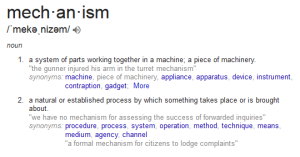
And here is where the complaints of many of the “Romantics” vs. the men of the Enlightenment start to really resonate with me. About 250 years ago, George Hamann echoed Vico in saying that “…human beings experience a regularity in the world around them, which they then improperly abstract into a concept of ‘natural law’ that excludes from serious discourse, the mystical, and the religious”. Johann Goethe went even further, essentially arguing that “the Renaissance ideal of classical languages, classical literature, and classical arts would be replaced by classical mechanics, which have no place for meaning, ethics, or Bildung [that is, the “tradition of self-cultivation, wherein philosophy and education are linked in a manner that refers to a process of both personal and cultural maturation”– Wikipedia]. In science and technology, every tool would be used to maximize the power of human being.” (view as summarized by Martin Noland).[v] And recently, I thoroughly enjoyed reading the Romantic author Curtis White’s take-down of scientific materialism (The Science Delusion, 2014) – where he endeavors to show time and again where pure naturalism and its machine are both illogical and socially harmful.[vi] These men contended – I suspect rightly – that modern science was becoming the one ring to rule them all largely because of the questions and concerns I have been raising.
![Picture of Ockham: “For Ockham, all talk of nature acting unconsciously for an end is pure metaphor… causal explanations of a mechanist sort alone are possible…. [he] opens the way to the purely empirical approach of Baconian science” (Holmes, Fact, Value, and God, p. 74)](https://infanttheology.files.wordpress.com/2015/07/william_of_ockham.png?w=225)
“In short, in the dominant Enlightenment mode of thought, the importance of character and trust in the “knowledge equation” are severely minimized, or, some cases, removed altogether. In this case, what we get is an anemic conception of knowledge where things like natural laws, physical evidence, accurate observation, mathematics, logic, and human reason become all that remain. Insofar as these things go hand in hand with the presence of humanity, in this mode of thinking they are basically extracted from human being, from character, from trust.”
So, again: does God rule the world through unbendable and mechanical laws of nature He has established? Perhaps laws He and we could actually articulate, enumerate – even capturing their essence mathematically, etc?
I must question here!
If it has not been clear enough why I think this way from what I have written above, consider also the following:
First, is there not an alternative way of approaching these matters that both retains the value of science and makes the particularly theistic/Christian assumptions regarding order in the universe more explicit? Why should we not assert the idea that the “laws of nature” are really just soft and hard regularities that God is constantly upholding and that we can depend on because God is love – and hence orders things for us to discover, use, and have confidence in?[vii]
Second, take into account this information from a WSJ review of Rebecca Goldstein’s book, Plato at the Googleplex (which I reviewed here):
“It is no accident that Socrates propounds what has come to be called the “Euthyphro argument” on the way to his trial. The pompous Euthyphro confidently tells Socrates that the holy is to be defined as “what the gods love.” Socrates points out that this gets things backward: The gods love the holy because it is already holy, not because they regard it so. In other words, things are not good because a supposed God approves of them; rather, God approves of what is good in itself, quite independently of his will. This Socratic argument undermines the entire idea that theology can provide a basis for morality and opens up a quite secular way of thinking about the nature of virtue. As Ms. Goldstein remarks, this was a seminal moment in the history of moral philosophy and indeed in the development of human civilization; it showed the power of pure rational thought.”
Note that Plato’s Socrates makes God subject to the [moral] laws of nature, opening “up a quite secular way of thinking about the nature of virtue” (however logically inconsistent this may ultimately be- see here and here). Brand does not make God subject to the [physical] laws of nature – He only says that God always works through the laws He has established. That said, one should be able to discern without too much trouble how the insight and value that Christianity has brought to these matters epistemologically is now readily “hi-jackable”.
In being sympathetic with arguments like those of Socrates, did Christians go badly wrong[viii], philosophizing in such a way (“voluntarism” and the like) that the church was removed further and further from what should have been a simple message? Namely that: while we cannot say that God’s creation and its laws necessarily had to be the exact way that they are, we can – and need to say – that these things are all in line with its Creator? For example, in order to defend God in a scientific age, it seems to me that one simply need not – and in fact should not – insist that God created (or especially needed to create) “the best of all possible worlds”. Could one not posit, for example, an immature and yet pure “very good” – which, had man responded well, could have become a mature and pure “very good” (ultimately becoming better… even more desirable)?
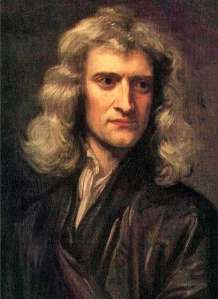
So, in order to be a good scientist is it really necessary to hold all of these ideas that Brand talks about above?
Or could my concerns – which would require shift the way that we think and speak about such matters (for one, dropping the “nature is a mechanism” talk)[ix] – be incorporated into a science which remains robust and successful? I am hard-pressed to think of a reason that it could not. After all, the “soft” and “hard” regularities that we observe in the world that God holds together in a very ordered way have the potential to be unambiguously labeled and quantified by all persons, trans-culturally and even trans-historically. For example, when we count specifically identifiable things this is not to say that there might be other ways of “capturing” or “harnessing” these particular realities (philosophically speaking, I think we can say that in each case, “number” is an actual thing that can potentially be counted by human beings and may or may not be depending on their purposes). Further, the fact that the “laws of nature” have often been shown to be only incomplete representations of reality – think of Newton vis a vis Einstein – shows us that there might always be more to these “laws” that may be identified at this or that moment and that we think should be said.
In short, I am saying this: I do not think we should be so hasty in our metaphysics here, being tempted to think that we can accurately label God as a scientist, mathematician or engineer. I will admit that I tend to think that He is more the Artist who does not need to quantify and measure – and that only some of us are the scientists, mathematicians, or engineers who decide to do this to some of his own work for our own purposes. I do not mean to denigrate scientists by saying this but rather to elevate God.
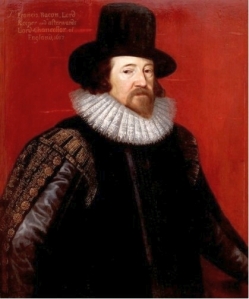
As alluded to by Hanby above, in our world today, “knowledge” – however one chooses to define it – is strictly related to what it does for us – or, more accurately, what we do with it in our “knowledge practices”. As Mr. Francis (not Roger!) Bacon insisted “knowledge is power” – and now, it appears, it is only power (in short, all “knowledge” essentially deals with bodies in motion, and is purely heuristic).[x]
And so, what should be our response to this? To insist, for example, that modern science could have only arisen in a Christian context, given that Christians believe that our orderly God has given us epistemological equipment that accurately comports with the cosmos and its laws of nature? As should be clear from my argument, I think that cedes far too much to the Enlightenment program and those of it’s forerunners.
Instead of this, I propose something more like the following summation:
When it comes to man’s modern scientific program (yes, certainly empowered by Christian beliefs!) no one can deny the importance – and appropriateness – of examining particular scientific matters and theories in terms of “utility” – these things really do, thanks be to God, “work”! That said, why should one ever insist that what we call the “laws of nature” – much less all of the theories built on them – are “true”? Why – as if we knew the inner workings of the mind of God and His creation (Vico) – should they ever be associated with what we call knowledge in any sense?
Why not rather assume that these “laws” are the truly conventional and contingent things – transitory maps and “useful fictions” – and that things like belief in God, human relationships, and moral truth are true and certain knowledge (not the other way around)?
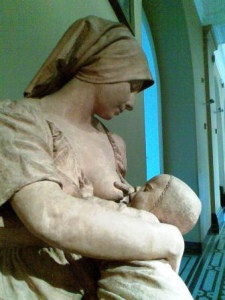
you made me trust you at my mother’s breasts.
On you was I cast from my birth,
and from my mother’s womb you have been my God.”
And where do I go from here theologically? Here: what we are to know and in fact already know in part should start with essential Christian doctrine. My argument builds on truths like those exemplified in Psalm 22:
“…you are he who took me from the womb;
you made me trust you at my mother’s breasts.
On you was I cast from my birth,
and from my mother’s womb you have been my God.”
And this: “I know whom I have believed, and I am convinced that he is able to guard until that Day what has been entrusted to me” (II Tim. 1:12, see John 17:3 as well).
…but ignore that last bit for now, and focus with me on my argument vs. our understanding of the scientific method. Am I off my rocker? If you think so, try to help me out and show me where I am wrong – but if you do, please try to address my actual arguments.
FIN
Notes:
[i] Of the first edition, fellow young earth creationist Kurt Wise wrote: “Faith, Reason, and Earth History makes a substantial contribution to creationist literature. It is the most philosophically sophisticated book on the subject and a must read for anyone interested in creationism and the origins controversy.”
[ii] Of course, one does not need to insist, with Jonathan Edwards, that God re-creates the entire universe during every moment, in order to challenge Brand’s notion that we can have real knowledge about something called “nature’s laws” in part because of this assumption about the mechanistic nature of nature.
[iii] Actually, I think we do need to say that a human being is a something as well – just not a mechanism. Here we find that the emphasis of some philosophers – mostly classical – on things like essence and substance are of use to us. See also Gumbrecht’s Production of Presence: What Meaning Cannot Convey.
[iv] As I argued in the past:
“considering the creation – and especially ourselves – as machines is spiritually dangerous because it opens us up to the temptation to think the same about all persons, including the Creator Himself! Then, we treat Him accordingly – that is, attempting to manipulate Him as we would any other machine. In sum, such thinking only gives fuel to our desire to justify ourselves over and against Him.
… it is not only incorrect to say that the cosmos is a machine, but it is even dangerous to say that it is like a machine – and it is best to avoid such talk… Please note that I am not saying that all persons who currently see the cosmos as a machine think as I have outlined above, for some still identify the cosmos with the creation and see God as very much involved in it. Further, I am not saying that the errors of those who really do see nature as wholly organic, free and divine are less theologically serious.
I am simply asserting that it is normal for the practice of methodological naturalism to lead persons in this mechanical direction and for it to affect our deepest beliefs. And I think to say this is not much different from saying lex orendi lex credenda (the Law of prayer is the law of belief). As one finds some success in the world using naturalistic techniques one may begin to think, somewhat logically, that they ought to have a very good reason for not letting their methodological naturalism become pure philosophical naturalism. Just what is that good reason? After all, they think, there is no doubt that I am understanding much about nature and learning ever better how to manipulate it. It works because it is true and its true because it works!”
[v] Noland, Martin R. 1996. Harnack’s Historicism: the Genesis, Development, and Institutionalization of Historicism and its Expression in the Thought of Adolf Von Harnack. Thesis (Ph. D.)–Union Theological Seminary, 1996. Consider also this quotation from Michael Polanyi: “The argument of doubt put forward by Locke in favor of tolerance says that we should admit all religions since it is impossible to demonstrate which one is true. This implies that we must not impose beliefs that are not demonstrable. Let us apply this doctrine to ethical principles. It follows that, unless ethical principles can be demonstrated with certainty, we should refrain from imposing them and should tolerate their total denial. But, of course, ethical principles cannot, in a strict sense, be demonstrated: you cannot prove the obligation to tell the truth, to uphold justice and mercy. It would follow therefore that a system of mendacity, lawlessness, and cruelty is to be accepted as the alternative to ethical principles and on equal terms. But a society in which unscrupulous propaganda, violence, and terror prevail offers no scope for tolerance. Here the inconsistency of liberalism based on philosophical doubt becomes apparent: freedom of thought is destroyed by the extension of doubt to the field of traditional ideals, which includes the basis for freedom of thought.” (From: —Michael Polanyi, “The Eclipse of Thought,” in Meaning, by Michael Polanyi and Harry Prosch [Chicago: University of Chicago Press, 1975], pp. 9-10).
[vi] Of course, there is much wrong with White’s alternative! I plan on doing a full review of the book in the future, but here is a preview of the kinds of things I will say: “The problem… is that White is a hopeless Romantic. Literally. Like the Idealists and Romantics before him, all eager to overcome the fallen world (their own definition of the fall: in the chains of society), White embraces notions of moral evolution (pre-Darwin) and takes pride in being aware of life’s irony: that man lives by fictions and that the artists and poets realize this. They thereby seek to be true not in the stories (not histories!) they tell, but in their varied efforts to gently enlighten us to and allign us with the [playful] activity that is of the World Spirit: such is the good and True and Good and Beautiful. Forget antiquated notions about the Faith once delivered to the saints – life, they assert as if they know it, is not about this or any other “Certain Knowledge” of humanity. This is the Faith and Conviction for which they will so courageously – and meritoriously – fight.”
[vii] Previously, I had written: “[Regarding how to understand science]….I think all of this can be better understood with a simple analogy: Parents arrange things in a consistent fashion so that a child can be captivated, play, create and experiment on the one hand, and they arrange things and *act* in a consistent fashion so that the child feels security, stability, and confidence, on the other hand. Arranging things in a consistent fashion – more or less so – depending on what we are talking about, and acting in a consistent steadfast fashion is a part of love. Creating beauty and order for another is a fruit of love. In other words, order is born of love, not love of order – or from a love of order! As the linguist Roy Harris perceptively notes, communicative behavior cannot arise from non-communicative behavior. There must be an infrastructure in place from the beginning. This matter does not center around the fact that truth is a social construct instead of some cold and impersonal factual correspondence, or something like that – but that how we conceive of and describe reality can’t not be done personally, or socially. And such should not surprise, because Reality is personal, is social (rooted as it is in the Reality of the Triune God). And this in turn brings us back to Romans 1. It is not that there is nothing to the idea that order=God, but rather that order can’t not be recognized as a fruit of love. Perhaps one’s proof of God does not begin by saying “Someone must have made this”, but rather by the love that one does know.
Now none of this means that we can’t observe [and harness, as are able] the hard and soft regularities that God has put in place for us. It just means being humble about working with these things, understanding that He has His own purposes for arranging the world as He sees fit, and we have our own purposes…” (from here)
[viii] Abelard contended that while intentions could be either good or bad, particular actions could not. Then, Duns Scotus was the first to argue that “As Old Testament moral practice was preparatory, our present moral understanding may also be provisional, and for this reason God’s actual commands to us may differ from the Decalogue” (Holmes, 71). Ockham argued that if the world was not contingent, this would necessarily make God subject to the universal forms (see here, particularly under “universals”) that were posited (the Roman Catholic philosopher Charles Taylor says that nominalism was adopted to safeguard God’s power: so that He would not be limited by overly strict conceptions of nature, particularly human nature. This new focus on “voluntarism” and “nominalism” seems to re-capitulate the Stoic’s reasons for shunning theories of forms while upholding some kind of creator God [though one with the cosmos] and His divine power). Again, of course, one who is more “Neoplatonic” (or, perhaps, simply Christian?) in their view of God and the world, for example, need not insist that a) there is only one possible way of structuring the world, b) that God could not freely choose to create universal forms (and some and not other potential others) that were in accordance with his nature.
[ix] As long as we do not think that nature (the creation!) is a mechanism. I am not saying that this is necessarily wrong or one is wrong to strongly believe that the creation is in fact a mechanism. I am simply saying that we really can’t have certain knowledge that the universe is a mechanism – but that it should not matter for the scientist.
[x] “..to establish and extend the power and dominion of the human race itself over the universe…depends wholly on the arts and sciences… For we cannot command nature except by obeying her… Truth, therefore, and utility are here perfectly identical.” – Francis Bacon (might that not help explain the confusion this N.Y. Times editorial pinpoints?)

